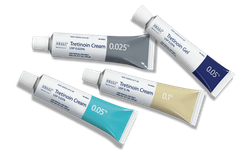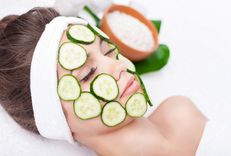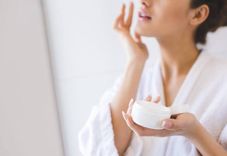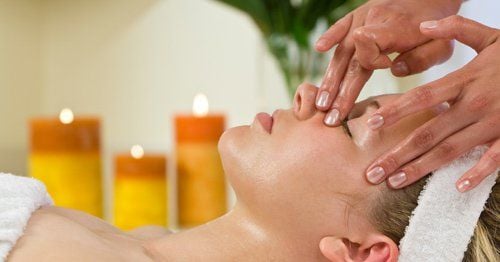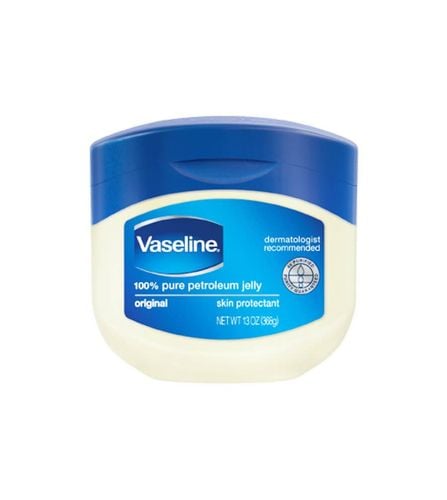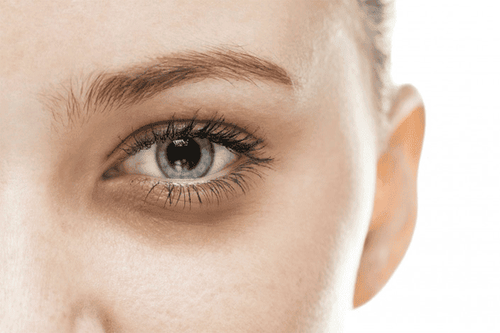These days, women utilize sleeping masks as a form of covering for skin treatment. But a lot of ladies still don't know what a sleeping mask is. Is it better to use a sleeping mask every day? In order to respond to the question mentioned above, we encourage you to read up on sleeping masks and their proper usage.
1. What is a sleeping mask?
A sleeping mask is a skincare product originating from Korea. True to its name, a sleeping mask is used at night to provide moisture and nutrients to the skin while sleeping. Usually, sleeping masks are in a soft, light form like cream or gel, calm, and penetrate the skin very quickly. Sleeping masks are used to apply on the face at night, before going to bed, and after daily skincare steps. Unlike many other types of masks, sleeping masks are used overnight and will be washed off the following day.
Sleeping mask usage:
The primary function of the majority of sleeping mask types is to increase facial moisture and supply water. They also aid in restoring damaged skin, whitening, aging prevention, and skin regeneration by supplementing nutrients and vitamins deep inside the skin cells.
The best time to take care of your skin is at night since it can rejuvenate without being impacted by UV radiation, unlike during the daytime. Use a sleeping mask to hydrate and nourish your skin's cells, a primary barrier to protecting your body. Consequently, a sleeping mask will result in rosy white, smooth skin.

2. Should sleeping masks be used daily?
You need to use skin care products daily to maintain a youthful appearance. On the other hand, overuse of skin care products can damage your skin. It's the same with sleeping masks. Regular use of these does not guarantee more attractive skin. Therefore, in order to answer the question of whether sleeping masks should be used every day, specialists advise that they shouldn't.
Sleeping masks are rich in nutrients and moisture, but using them too frequently will make your skin more sensitive to acne, increase oil production, and decrease its natural moisture content. As a result, sleeping masks should be used selectively and according to the environment (both at home and outside), the individual skin type.
Women with sensitive skin, oily skin, or acne should only use sleeping masks once or twice a week because putting a sleeping mask directly on poor skin means giving it excessive nutrients, preventing the skin from breathing and absorbing nutrients. The skin is going to keep getting worse due to the present problem.
More hydration must be applied to women with dry skin. Therefore, in order to give your skin additional nutrients, you might wear a sleeping mask two or three times a week. Furthermore, you have to keep from overusing it.
If your financial permit, you can consult a dermatologist directly for guidance on setting up an appropriate skin care routine. The sort of sleeping mask you use for skin care and the state of your skin will influence how often you should use it. You shouldn't use a sleeping mask every day.

3. Instructions on how to use a sleeping mask
Instructions on how to use a sleeping mask effectively
The following procedures will help you use sleeping masks in the best way possible: Wash your face after taking off your makeup. After rebalancing your skin with a toner or moisturizing serum, apply the sleeping mask on your face (you can skip the moisturizer step if you have oily skin).
Applying the sleeping mask evenly to your skin requires a sufficient amount of sleeping mask cream or gel. To allow the nutrients in the sleeping mask to absorb into your skin, gently pat and massage it with your hands for around five minutes before bed.
Some considerations while using sleeping masks
The following notes may help you understand how to use sleeping masks more effectively and maximize their impacts:
- Before wearing sleeping masks, wash your face well.
- If you have oily skin, you should avoid using a sleeping mask that is too thick or dense because it can easily clog the skin, causing extra moisture and making it more susceptible to acne. Apply simply a little coat and spread it evenly around your face.
- The next morning, you should wash your face with warm water. Since the mask will clog your pore space and result in acne if you keep it on for an extended period of time.
- Avoid from touching or getting on your pillowcase with your face. In order to give the sleeping mask time to seep into your skin, you should apply it fifteen minutes before bedtime.
- To prevent bacteria from adhering to the sleeping mask, do not remove it with your hands. To take off the sleeping mask, use the tiny spoon that comes with it.
- Do not use the sleeping mask instead of your daily moisturizer.
The information above clarifies the definition of a sleeping mask for women and provides answers to concerns about the everyday use of sleeping masks. The information provided here will assist women in acquiring the knowledge and comprehension necessary to apply a sleeping mask correctly, along with instructions on how to utilize it.
To arrange an appointment, please call HOTLINE or make your reservation directly HERE. You may also download the MyVinmec app to schedule appointments faster and manage your reservations more conveniently.
